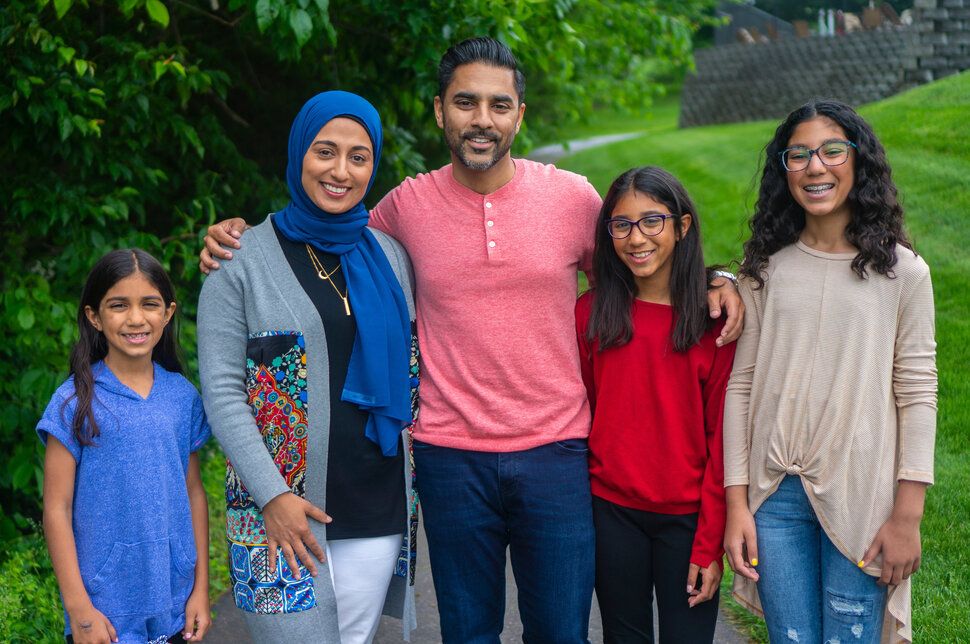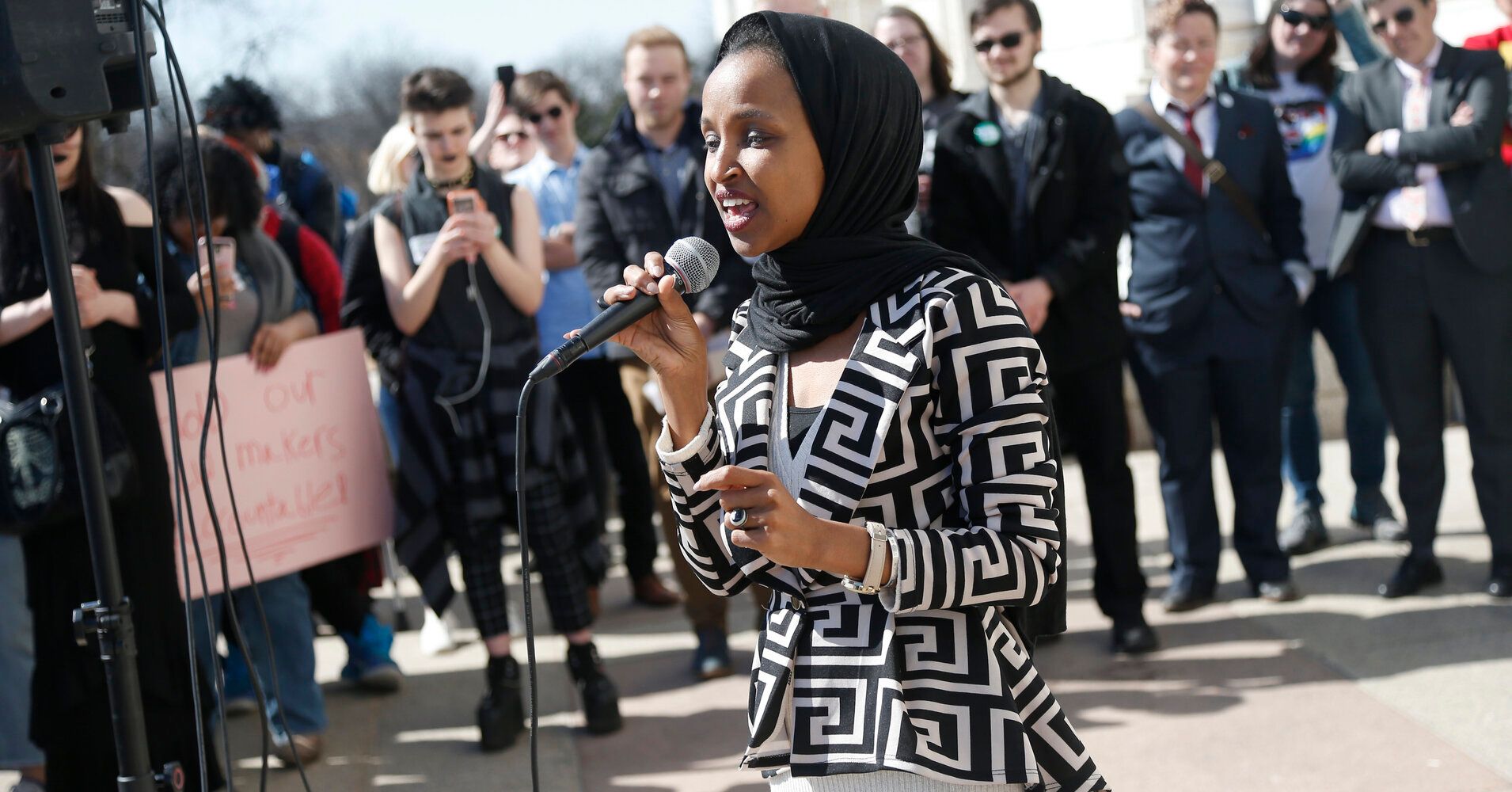[ad_1]
President Donald Trump’s decision to vilify Rep. Ilhan Omar (D-Minn.) has had real, harmful effects not just on the first-year congresswoman, but on Muslim candidates running for public office at the state and local levels as well.
In March, Omar faced significant criticism ― including from members of her own party ― for comments about Israel, which they said played into anti-Semitic tropes. She apologized, but Trump and his allies used the dust-up to further paint her and the Democratic Party as anti-Israel and anti-Jewish. In April, Trump tweeted a video that dishonestly purported to show Omar downplaying 9/11. He also continued to characterize her as anti-Semitic in tweets and speeches.
Omar, one of the first Muslim women elected to Congress, saw a rise in death threats following all the Trump attacks. Her office said she “receives daily death threats ― almost all of them threatening to kill her because of her religion.”
The fallout didn’t just end there. HuffPost spoke to five Muslim Americans running for office in Virginia, which has state elections this year. Some of them saw an increase in death threats after the Trump attacks on Omar, underscoring the point made by many of Omar’s allies that the uproar was never really just about her ― it always had far more to do with her religion.
Others expressed disappointment that members of their own Democratic Party didn’t stand by the congresswoman more forcefully.
“When you look at [House Speaker] Nancy Pelosi and how everyone responded and didn’t stand by [Omar] ― and in some ways kind of propagated or pushed for the critiques against her ― it really begs the question of whether minorities belong in either party,” said Abrar Omeish, who is running for the Democratic nomination for an at-large seat on the Fairfax County School Board.
![Qasim Rashid, a Virginia state Senate candidate, said the attacks don't deter him from running for office. "In fact, [they] e](https://newsonmedia.com/wp-content/uploads/2019/05/muslim-candidates-feel-the-effect-of-trump-attacks-on-ilhan-omar.jpeg)
Qasim Rashid, who’s running in the Democratic primary for Virginia Senate District 28, has received several death threats that he said the FBI is investigating. Most of them came by email before the Trump-Omar controversy, but he also received ones afterward that were clearly related to Trump’s comments.
“The rhetoric from the right, unfortunately, is empowering some very unhinged people to make some really nasty threats,” Rashid said. “I’m experiencing that, and I know it’s still probably a fraction” of what Omar and Rep. Rashida Tlaib (D-Mich.), the other Muslim woman elected to Congress in 2018, are receiving.
Ibrahim Moiz, a Democratic candidate for the Loudoun County Board of Supervisors, said that while he hadn’t received any death threats, his wife had a hateful run-in after the Trump attacks on Omar when someone accosted her at a local shop.
“She went by, and someone just started yelling at her because she wears a headscarf,” Moiz said. “She engaged with them back because she’s a fighter. But thankfully, it stopped there.”

Discrimination against Muslim candidates didn’t start with Trump. For years, facing the rise of an Islamophobic movement on the right, Muslim Americans have braced themselves to be smeared as a terrorist, an anti-Semite or a member of the Muslim Brotherhood.
Even aside from the threats of violence, Muslim candidates and politicians have to deal with harmful and discriminatory assumptions and microaggressions.
Omeish has found herself having to field questions about her views on Middle East politics ― even though the topic has little to do with the position she seeks on the Fairfax County School Board. She said someone once told her they were glad she wasn’t one of “those” Muslims who has to pray on time ― even though she actually does ― as if there’s something inconsistent with being a devout Muslim and a modern liberal woman.
She said that while she had expected the Muslim Brotherhood smears, “I definitely didn’t anticipate the ignorance and animosity that are baseless. I underestimated how much diversity and being a minority for me has shaped how I think about others. So it surprised me to see how shameless people can be in how they behave or express themselves against me.”
In an incident that made national news, Ibraheem Samirah, who won a special election this year to the Virginia House, was greeted by anti-Muslim protesters at his first town hall meeting and was asked how he would implement Sharia law.
“I do think it’s unfair and unfortunate and unacceptable that it’s 2019 and when Muslims run for office or immigrants run for office, that we essentially all go through the same things,” said Yasmine Taeb, a Democratic candidate for Virginia Senate District 35 who received death threats for the first time after the Trump rhetoric against Omar.
“It’s so frustrating every single Muslim candidate that runs for office ― their opponent will just peg them as this anti-Semitic, anti-Israel person,” she added.
Yet Taeb, like every other candidate who spoke with HuffPost, said they feel more energized than ever to run for office.
“These are exactly the kind of attacks that make me realize that this is why Muslim candidates need to step up and be able to make sure our voice is heard too,” said Hassan Ahmad, a Democratic candidate running in Virginia House District 87. As an immigration lawyer, Ahmad rushed to Dulles International Airport in 2017 to help people affected by Trump’s travel ban targeting people from Muslim-majority nations.
Wa’el Alzayat is the CEO of Emgage PAC, an organization that supports Muslim civic engagement and has endorsed all five of the candidates who spoke with HuffPost. He said he’s seen an increased interest in running for office after 2018, and he also believes that the president’s attacks are motivating people to get involved.
“Anecdotally, I think what’s happening is the more she’s being attacked, the more Rashida gets attacked, and others like them, it pushes the community to double down and say, ‘No, this is our space. We’re going to be in it, we’re going to run, we’re going to get out and vote. We’re going to be involved,’” Alzayat said. “If anything, it’s getting people even more motivated.”
“It’s my generation’s responsibility ― second-generation Americans ― to make sure we’re getting out there,” Moiz said, “and bridging that gap of ignorance, of not knowing about who Muslims are, what they believe in, what they value ― and then breaking that barrier down just by being around everywhere.”
REAL LIFE. REAL NEWS. REAL VOICES.
Help us tell more of the stories that matter from voices that too often remain unheard.
[ad_2]
Source link

